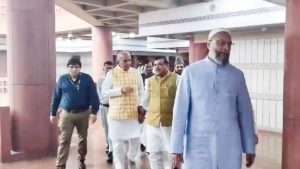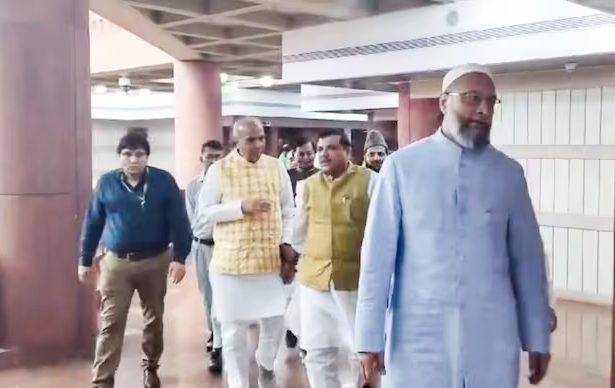Waqf (Amendment) Bill The omission of the ‘Waqf by User’ clause in the Waqf (Amendment) Bill has sparked significant controversy, as two prominent Muslim organizations, the All India Muslim Personal Law Board (AIMPLB) and the All India Backward Muslim Morcha (AIPMM), expressed their strong objections during discussions with the Joint Parliamentary Committee (JPC).

On Thursday, representatives from both organizations presented their concerns regarding the proposed amendments to the Waqf Act of 1995. The AIMPLB raised alarms about the implications of certain provisions, while the AIPMM supported the bill, highlighting its potential to improve transparency and accountability in the management of Waqf properties.
Waqf (Amendment) Bill Divided Opinions
A representative from the AIPMM emphasized the need for governance based on the rule of law rather than religious texts. “The bill, with some modifications, could eliminate corruption and opportunism in Waqf property administration,” he stated. The AIPMM urged the inclusion of marginalized communities, specifically backward Muslims and women, in the committees overseeing Waqf properties. They also called for audits by the Comptroller and Auditor General, citing extensive mismanagement and corruption issues within the existing framework.
In stark contrast, the AIMPLB vehemently opposed a controversial provision in the bill that restricts the establishment of a Waqf to a period of only five years. This clause was labeled unconstitutional and beyond the legislative competence of Parliament. An AIMPLB representative argued, “This bill could lead to religious surveillance on Muslims,” highlighting the infringement on religious freedoms it could represent.
Legislative Backlash
The bill, which seeks to amend the Waqf Act, has ignited substantial debate among lawmakers. DMK Member of Parliament A. Raja criticized the proposed changes, suggesting they represent a regression to outdated practices established in 1954. “The current provisions seem to negate past reforms,” he remarked, referencing amendments made in 2013 and 1994.
Tensions escalated during the committee meeting, particularly when an opposition member directed harsh remarks at BJP member Medha Kulkarni. According to parliamentary sources, Kulkarni requested an apology, which was initially dismissed. She insisted the apology be made during the committee meeting rather than privately.
Legal Concerns Raised
Legal expert Faizan Mustafa, Vice-Chancellor of Chanakya National Law University, also contributed to the discussion, arguing that the bill contradicts several landmark Supreme Court judgments and could undermine the delicate balance of federalism enshrined in the Constitution. Mustafa’s remarks touched on broader topics such as the controversial concepts of ‘one nation, one election’ and a ‘common civil code’, eliciting strong reactions from some committee members.
As deliberations continue, the JPC has announced plans to visit various cities, including Mumbai, Ahmednagar, Hyderabad, Chennai, and Bengaluru, from September 26 to gather additional feedback on the bill. This outreach aims to ensure a comprehensive understanding of the implications of the proposed amendments.
A Broader Conversation
The proposed changes to the Waqf Act have ignited a broader dialogue about the governance of Waqf properties and their role in serving the community. While many advocate for greater transparency and accountability in property management, others warn of the potential for government overreach. The ongoing debate reflects the complexities of balancing community needs with legislative intent, emphasizing the importance of inclusive discussions that honor the diverse perspectives within Indian society.
As stakeholders continue to voice their concerns, the fate of the Waqf (Amendment) Bill remains uncertain. The outcome will likely influence the management of Waqf properties and the future of communal governance in India, marking a pivotal moment in the intersection of law, religion, and social justice.


